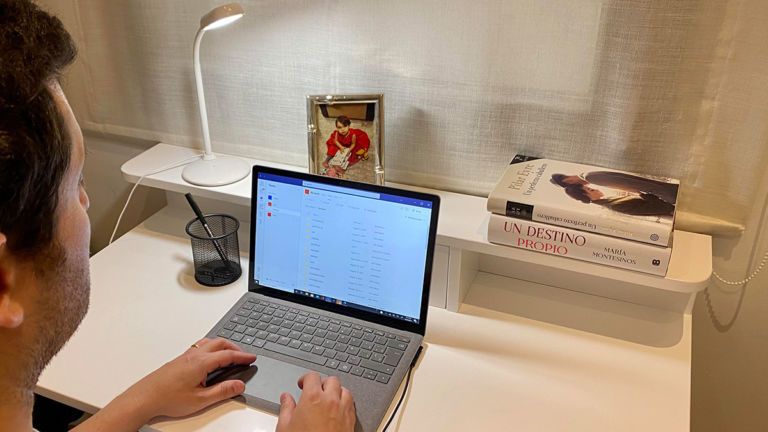Covid-19 has accelerated all the digitalisation processes in companies, including remote working.
Companies have had to adapt to the new reality and take care of the well-being of their teleworking teams.
Another major challenge in employee management is remote leadership.
Below, we discuss the 4 most important keys to managing and leading online teams.
#1 Work by objectives
The culture of presence belongs to a mindset and leadership of the last century, yet it is still present in many companies.
"It makes no sense to compensate people for the number of hours they spend in front of a screen. Working by objectives is one of the keys to success in remote team management.
For this, it is necessary to set long, medium and short-term goals. One of the frameworks that works best for teleworking is agility, as it makes the status of each project visible and encourages remote communication and interaction of teleworking employees.
#2 Constant communication
Teleworking has innumerable benefits for both business and team well-being, but it also presents some feedback problems. One of these is the misunderstandings that occur in online team communication.
"The lack of physical contact and moments of casual conversation means that companies need to make an extra effort to foster fluid communication.
To avoid these leadership and communication problems, companies have digital tools that facilitate communication and feedback within the team. One of the keys is to create communication codes together, and let the team choose the most appropriate channels, formats and tools.
#3 Empowerment
Identifying process bottlenecks is essential to ensure the efficiency and performance of the organisation. Once identified, it is easy to propose improvement solutions with the right tools. These bottlenecks are often found in the leadership of decision-making, so delegating certain responsibilities is the best practice to facilitate joint work and manage time effectively, so that companies not only improve their efficiency, but also contribute to autonomy, better use of time and the well-being of the team as a whole.
#4 Continuous feedback
Performance or annual job performance evaluation is on the back burner. Waiting a year or 6 months to improve any process is far from efficient management; companies must carry out constant data analysis for efficient HR leadership. For this reason, the trend in the market is to opt for continuous feedback, which is more typical of liquid organisations. To achieve this change of mentality, the people department and its leadership will be key in the process.
Conclusions
In short, remote team management is here to stay. A recent Gartner study states that almost 50% of all employees will continue to work remotely after Covid-19.
"Remote management is not radically different from on-site people management. The biggest difference is a shift in management style from 'management by eye' (assuming workers are productive because you physically see them at their desks) to managing by results." - Phil Montero, Director of Events and Marketing at Model N.


 Employee database
Employee database  Documents and e-signature
Documents and e-signature  Reporting and analytics
Reporting and analytics  Payroll and incidents
Payroll and incidents  Time and Attendance Software
Time and Attendance Software  Shifts and task list
Shifts and task list  Absences & time-off
Absences & time-off  Workflows
Workflows  Expense management
Expense management  Recruitment and selection software
Recruitment and selection software  Onboarding
Onboarding  Training and procedures
Training and procedures  Internal communication
Internal communication  Performance assessment software
Performance assessment software  HR surveys and forms
HR surveys and forms  Chatbot
Chatbot 